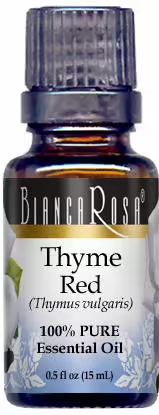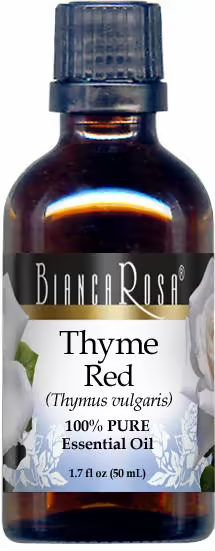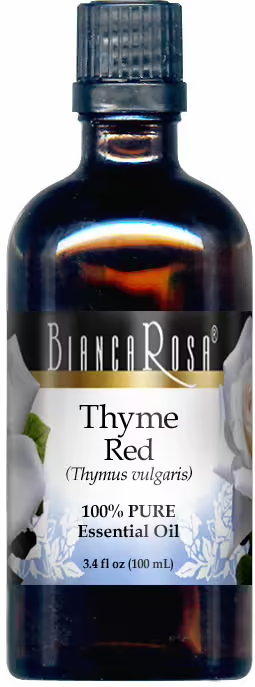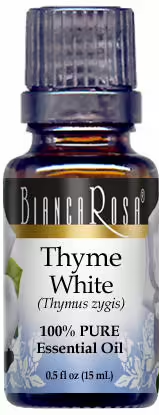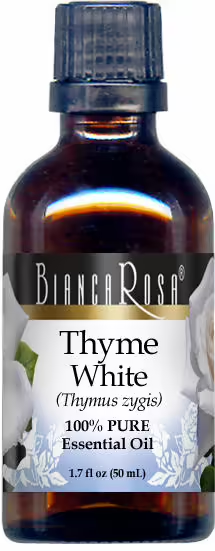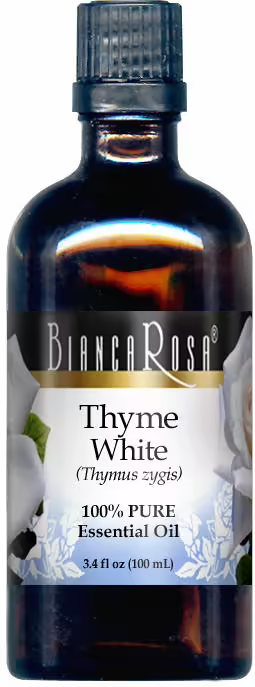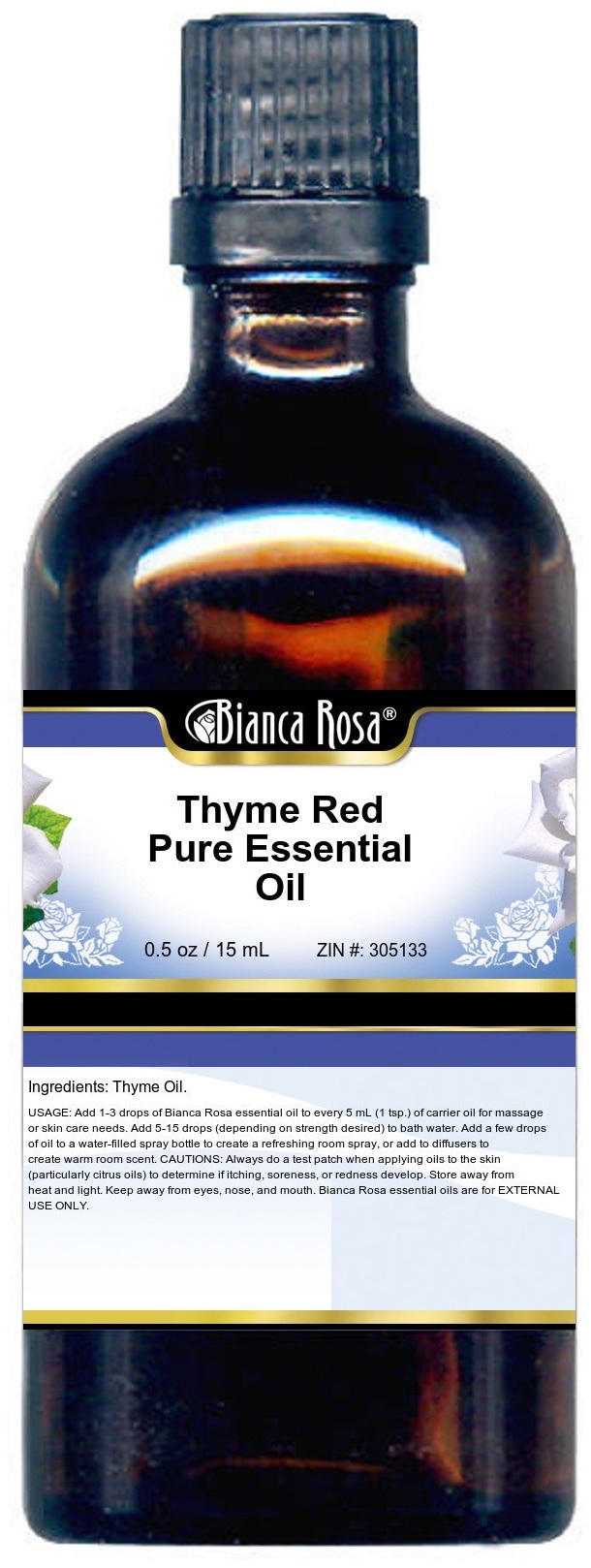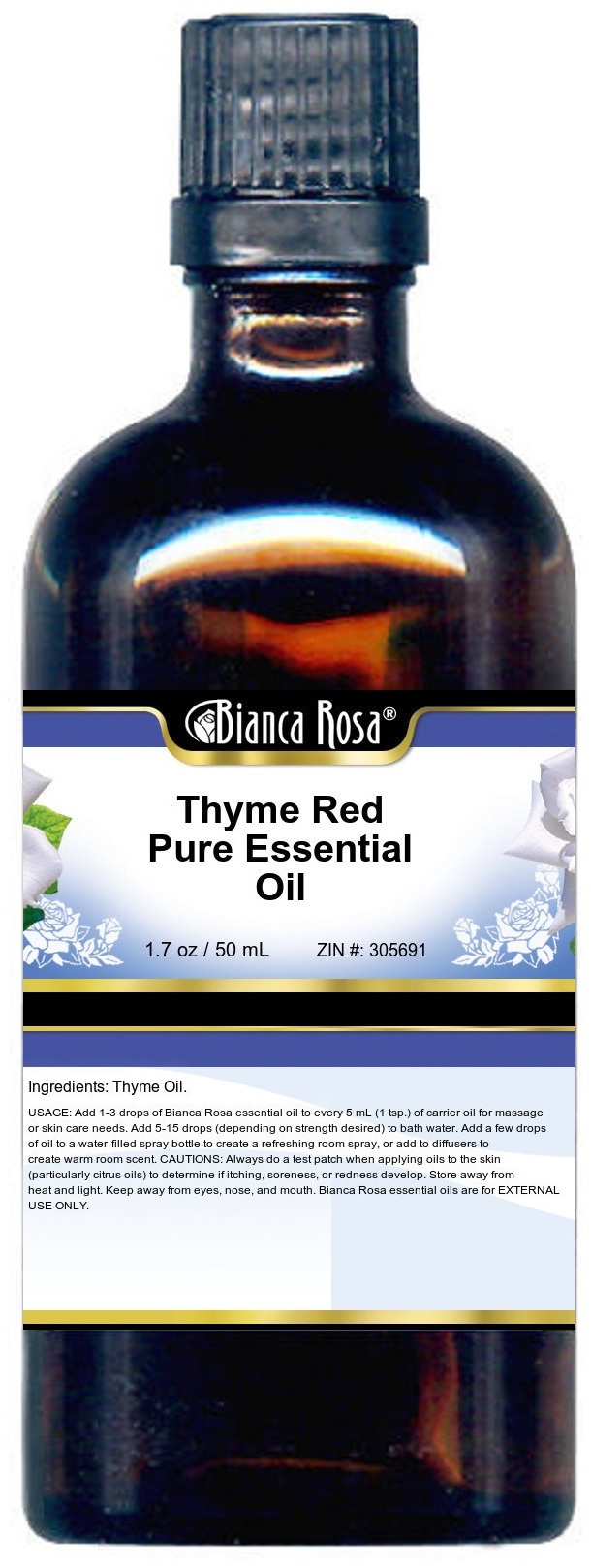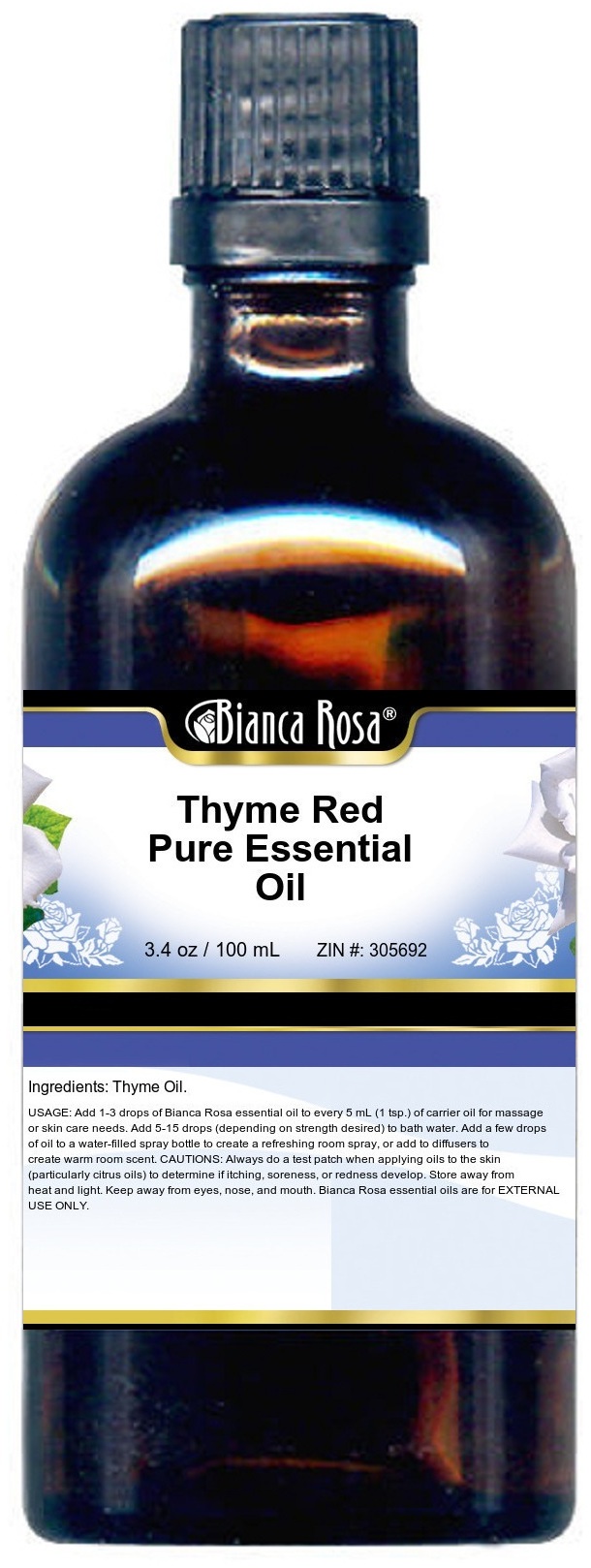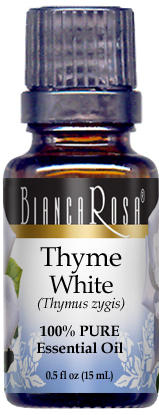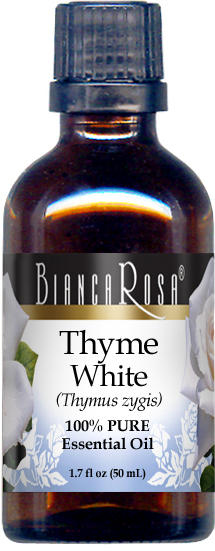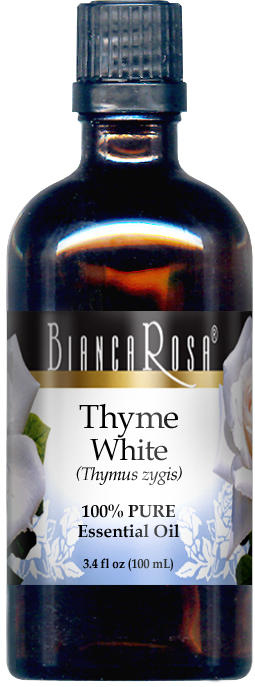Thyme Red Essential Oil
| Images | Product Name | Size | ZIN | Price | Quantity | Add to Cart |
| Thyme Red Pure Essential Oil | 0.50 oz | 305133 | $14.63 | |||
| 1.70 oz | 305691 | $27.86 | ||||
| 3.40 oz | 305692 | $43.88 |
Essential Oils by Bianca Rosa are 100% Pure Natural Essences derived from the highest quality fruits, flowers, leaves, spices, herbs and roots. Our essential oil distillers and growers are located around the world, operating ethically, organically and chemical-free.
Bianca Rosa Essential Oils Are Not Tested On Animals.
Bianca Rosa Essential Oils Are Not Tested On Animals.
These statements have not been evaluated by the Food and Drug Administration (FDA). Products are intended to support general well being and are not intended to treat, diagnose, prevent, or cure any condition or disease.
Thyme White Essential Oil
| Images | Product Name | Size | ZIN | Price | Quantity | Add to Cart |
| Thyme White Pure Essential Oil | 0.50 oz | 406732 | $15.06 | |||
| 1.70 oz | 406733 | $29.25 | ||||
| 3.40 oz | 406734 | $46.46 |
Essential Oils by Bianca Rosa are 100% Pure Natural Essences derived from the highest quality fruits, flowers, leaves, spices, herbs and roots. Our essential oil distillers and growers are located around the world, operating ethically, organically and chemical-free.
Bianca Rosa Essential Oils Are Not Tested On Animals.
Essential Oils by Bianca Rosa are 100% Pure Natural Essences derived from the highest quality fruits, flowers, leaves, spices, herbs and roots. Our essential oil distifiers and growers are located around the world, operating ethically, organically and chemical-free.
Bianca Rosa Essential Oils Are Not Tested On Animals.
Bianca Rosa Essential Oils Are Not Tested On Animals.
Essential Oils by Bianca Rosa are 100% Pure Natural Essences derived from the highest quality fruits, flowers, leaves, spices, herbs and roots. Our essential oil distifiers and growers are located around the world, operating ethically, organically and chemical-free.
Bianca Rosa Essential Oils Are Not Tested On Animals.
These statements have not been evaluated by the Food and Drug Administration (FDA). Products are intended to support general well being and are not intended to treat, diagnose, prevent, or cure any condition or disease.
